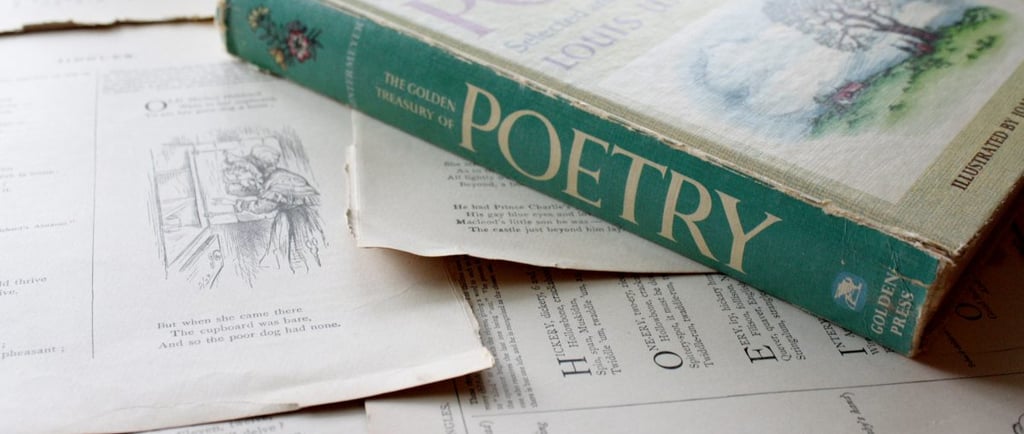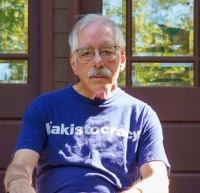SALZBURG
ALM No.81, October 2025
POETRY


The Haunted House of Estranged Sons
1.
I asked the stone mason and ironmonger,
The journeyman and hired gun,
The steamcleaner and sandblaster,
And their voice was as one.
“No, you cannot wipe away these stains,
These tears of the forsaken
That come with the rains.
That drip, drip, drip the rust
From ornate iron to obdurate stones.
They scar, these ghosts of old cloudburst
Like the sorrows of estranged fathers and sons.”
Any house worth its timbers is haunted
By phantoms in timeworn photographs.
Dumbstruck by death, they keep mum
Their undiminished regrets and griefs.
But ours is one of knocks and voices in the night
And grievances that no grave can extinguish.
Of apparitions that waylay the unwary guest
With ravings of Lear-like anguish.
Any lived-in house is a conversation
Of those who came first and those who come after.
Each new tragedy resets wardrobe and props,
By dresser and stagecrafter.
But ours is the starkest dialogue
Between wounded father and wayward child.
The father built his oaken Versaille
That the son, back from bittermost exile,
Graced with an enchanted forest of steel.
Act of atonement for the ages,
That went unblemished for a mere season.
Then came the rains, dripping and dripping
Drops of indelible pale blood on flagstone.
2.
High in the eaves are twin secret rooms
As if for each pair of estranged father and son.
That I imagine cloister the unquiet ghosts
Of things that cannot be unsaid or undone.
Cells of remorse that, while doppelgängers,
One to the other are all but strangers.
So I will never know the breach of trust
That disowned the father and unfathered
The son. But I know my own,
*The fraught matter of blood deferred.
We lost the common bond of native decency
And the storyline of lives deeply entwined
In a mass hallucination of an emergency.
I don’t know what wild Andes and Germanys
In which the son found strange solace.
But I do know my own:
An outstretched thumb to anywhere else,
That skidded me to every hardscrabble
Row north of the borderline,
Lost among the causeless rebels.
And I don’t know the epiphany of the son
That once more upended his world.
But I do know my own:
The girl, a craft, and again the girl,
The singing girl, who lullabied
The inconsolable child who hid behind.
Made me the man, and she the bride.
And I don’t know what was said or unsaid,
Or forgiven or unforgiven,
When they at long last broke bread
At Art’s Delicatessen.
But this happened at our family haunt:
Father and son locked eyes with wild surmise
That we were inseverable, if not bloodlined.
While others looked on in piqued surprise.
3.
*And no, I do not know why the father of my blood
Spurned me before my first breath.
But I know that he talked to me in music,
And talks still, long after death.
Susurring like the Raindrop Prelude,
And just as tormented and ghost-ridden.
Notes dripping like tears from wrought iron
On flagstone, to be forever graven.
4.
I asked the oracle and pedagogue,
The psychic and psychologist,
The dramaturge and mystagogue,
The sky father and earth goddess,
And they answered in Greek chorus.
“No, you cannot wipe away these stains,
These tears of the forsaken
That come with the rains.
That drip, drip, drip the rust
From gossamer iron to gothic stone.
“And yet – where there is life, and merit,
There is some delicatessen of the spirit,
Where you can go to mend the trust
Of once-estranged fathers and sons.”
Salzburg
1.
Eternal morning.
Call and response from a mediocre star to a planet
Of singular, fretful genius.
Dawn-struck, the hills blaze with black-eyed Susans.
Golden petals bloom with heat, atomizing the nectar
That calls to the virtuoso mason bee.
A chaffinch pierces the air with his aria
Of bright trills and cadential flourish.
A songless diva alights on the next eave,
Tremulous with desire.
Cream-colored bread truck labors up the Linzer Strasse.
Profaning the air with a cough of exhaust,
Then perfuming it with the intimation of new life.
Lovers awaken in a muss of limbs
And cloud of stale wine breath.
Their many indiscretions of the night
Erased by their first sips of cappuccino.
Absolution that Capuchin monks
Courted for fifteen hundred years
In the monastery crowning the hill.
2.
Dying, the Tethys Ocean crystallized into purest salt.
Which called forth the operatic fortress on Hohensalzburg hill.
Which called forth the cathedral and palaces.
Which in turn called forth the monastery across the river.
Eternal call and response,
Vainglorious whims of salt kings
Answered by the abstemious ways of the monks.
From this fretful congress of decadence and self-denial
The music poured forth,
Like the lovers-swarmed river flows out of the Alps.
As naturally as Edelweiss spills like milk over the hills,
With one supernatural exception.
Call and response:
Monks and crowned heads alike pray for millennia
For the Second Coming, or the semblance of any miracle.
Yet when the power beyond the sun and planets finally replied,
Singularly blessing them with an impish, bright-eyed,
Prodigally gifted son of their otherwise provincial city,
They snub him until he slips into the unmarked grave.
3.
The newly sated lovers are seated in the Mozarteum,
In a hush not unlike that before the act of love.
As familiar as it is note-perfect,
And bestial and sacred at the same time.
Now the orchestra irrupts the urgent fanfare,
Now strings caress it with a lover’s tenderness.
With call and response
As of extinct ocean to city of salt,
As of fortress to monastery,
As of songbird to mate,
The concert begins.
Posing once more
The eternal question.
Which burns longest?
Our mania for immolation
Or scattered, divine sparks of invention?
Which will outlive the other?
The planet Jupiter
Or the symphony by the same name?
Craig Constantine was born in San Francisco, in the Before Times. After tramping most of the American West and Canada, he has landed for a time in Los Angeles. He’s been a day laborer, bread baker, furniture mover, factory worker, and TV producer. Now a poet, the hardest, worst-paid, best job he’s had. His poems Tahoe Blue and Bad Songs appear in the current editions of The Crank and 34th Parallel magazine. Craig lives with his wife Stacey and son Chris in the namesake haunted house, along with Cody the Border Collie, numerous koi, and a family of owls.

